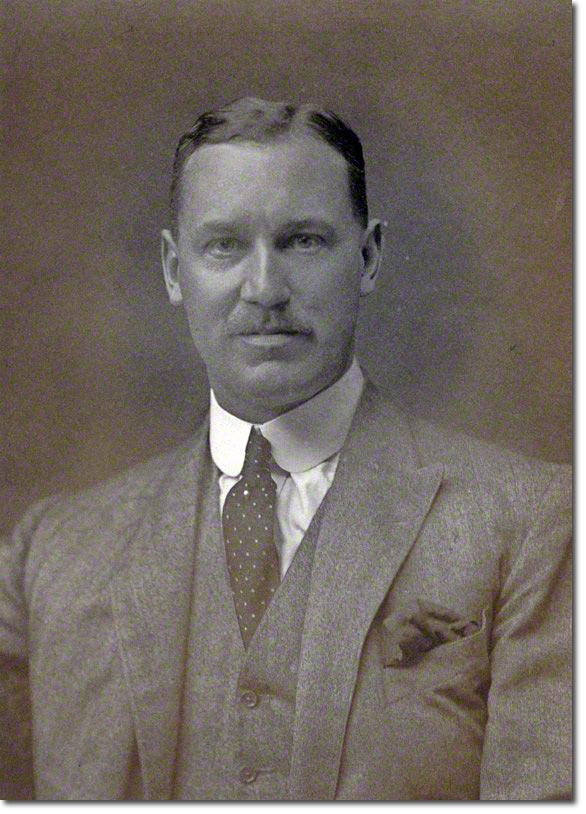|
|

 |
|
In November 1924 Sir Geoffrey Francis Archer was unexpectedly appointed governor-general of Sudan to succeed Sir Lee Stack, whose assassination in Cairo had precipitated a crisis in Anglo-Egyptian relations, not least in Sudan itself, where Egypt and Britain were nominal co-domini. It was the first time that a civilian had held this office. He travelled overland from his previous post in Uganda by walking from Nimule to Rejaf and then travelling by steamer down the Bahr al Jabal to Khartoum.
Archer's governor-generalship in Khartoum was unhappy and ended in failure. The first ‘outsider’ appointed to a post that had been occupied by Sir Reginald Wingate, Field Marshal Kitchener, and, indeed, General Gordon, Archer failed from the outset to win the loyalty of the Sudan political service, an élite administrative cadre. He arrived during political turmoil in the wake of Stack's murder. One army battalion in Sudan felt bound by their oath to the Egyptian king and refused to obey British orders in the wake of Stack's murder and mutinied. The British violently suppressed the mutiny, removed all Egyptian army personnel from the Sudan and purged the administration of Egyptian officials. One of Archer's early decisions was to initiate the formation of the Sudan Defence Force, with a command structure completely separate from the Egyptian army. He dropped the Egyptian title "Sirdar" for the supreme commander, and did not wear the Egyptian tarboush. He made it very clear that he was commander in chief of a purely Sudanese army, while reassuring Sudanese officers who had served in the Egyptian army that they would be retained if they had not taken part in the mutiny. In the aftermath of the upheaval the British wondered how much educated Sudanese were being influenced by Nationalist ideas. Consequently, during Archer's tenure the main concern of the government was to reduce the power of the local intelligentsia and to transfer greater authority to traditional rulers - breaking the delicate 'Dual Policy' balance of his predecessor. Archer did little about the issue of whether southern administration should be "Arabicized" or given a more English and Christian flavour.s However, he deferred to Lord Lloyd, the British High Commissioner for Egypt and the Sudan, who stated in a memo to the Foreign Office that "on political, educational, religious, and administrative grounds it is desirable that Arabic as a general language should disappear from the Southern provinces". Archer was enthusiastic about the massive scheme to dam the Blue Nile at Sennar so as to irrigate the Gezira plain for cotton cultivation. He described the plan as the application of "western science to native economic conditions". His enemies within the administration were appalled by his decision to meet the son of the famous Mahdi who had been responsible for the death of General Gordon. In 1926, he was formally welcomed by Sayyid 'Abd al-Rahman with 1,500 of his Ansar supporters. Escorted by horsemen, the dignatories went on by car to a reception at the Sayyid's house. Replying to a speech by the Sayyid, Archer said his visit marked "an important stage forward in the relations" between the Sayyid and his followers and the government. Archer said he had come to cement the ties of friendship and understanding. This conciliatory and widely publicized visit to Sayyid ‘Abd al-Rahman al-Mahdi was used as a pretext by the governor-general's senior staff to complain directly to Lord Lloyd, British high commissioner in Cairo. Lloyd took private advice, which indicated that the rupture between Archer and his leading subordinates was complete, and Archer was forced to resign. The circumstances of his resignation (about which there were rumours concerning his personal as well as professional conduct), and his subsequent ill health, brought an end to his active career at the early age of forty-four. Archer's long retirement was spent first in business in India and later in the south of France. His east African experience resulted in two books: The Birds of British Somaliland and the Gulf of Aden, with E. A. Bodman (4 vols., 1938–1960): and Personal and Historical Memoirs of an East African Administrator (1963). Archer died on 1 May 1964 at Palais des Dunes, La Croisette, Cannes, France. Image courtesy of National Portrait Gallery |
Armed Forces | Art and Culture | Articles | Biographies | Colonies | Discussion | Glossary | Home | Library | Links | Map Room | Sources and Media | Science and Technology | Search | Student Zone | Timelines | TV & Film | Wargames